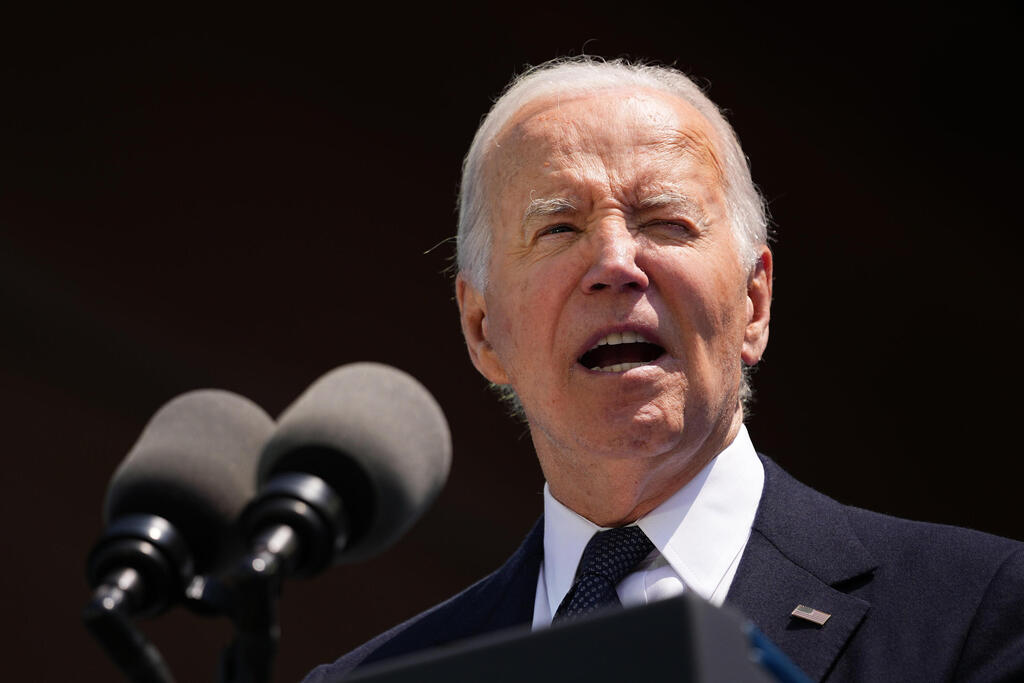At 6:29 a.m. on October 7, Netanyahu was awoken by a WhatsApp message from a senior officer: Hamas had launched its assault. On a secure call moments later, he ordered the assassination of Hamas leadership and asked, “Can we take out their leadership?”—a sharp contrast to his prewar resistance to striking Gaza. When told the IDF had hit 1,000 targets, he scoffed: “1,000? I want 5,000.”
Even in the war’s earliest hours, Netanyahu was already crafting a political shield. “I saw nothing in the intelligence,” he said in one of his first conversations. According to the Times, he ordered meetings to go unrecorded, aides to alter official transcripts, and even had senior officers searched for hidden recorders. A classified document was leaked to a foreign outlet in what appeared to be an effort to discredit his critics—including hostage families.
3 View gallery


Pressed for ceasefire in Gaza, former President Joe Biden
(Photo: Benoit Tessier /Reuters)
As ceasefire negotiations progressed, Netanyahu inserted new military objectives—such as capturing Rafah and seizing the Egyptian border—objectives the military did not deem vital. These delays came at a heavy cost in hostage lives and appeared, the investigation notes, to serve a political purpose: preventing a deal that could fracture his coalition.
In April 2024, a detailed six-week ceasefire proposal—including the release of over 30 hostages—nearly made it to a cabinet vote. Saudi Arabia, seeing a chance to normalize ties with Israel, was ready to back the deal. But during the meeting, Finance Minister Bezalel Smotrich warned: “If such an agreement is presented, you no longer have a government.” Netanyahu folded. “No, no—there’s no such thing,” he replied, then whispered to his advisors, “Don’t present the plan.”
3 View gallery


Netanyahu decided that seizing Rafah was suddenly important
(Photo: Ohad Zwigenberg/ AP/ Pool)
What began as a national crisis turned, in Netanyahu’s hands, into a stage for political endurance. As the war expanded across borders and dragged on for months, the prime minister emerged not as a unifying statesman, but as a tactician bent on outlasting the chaos—whatever the cost.

